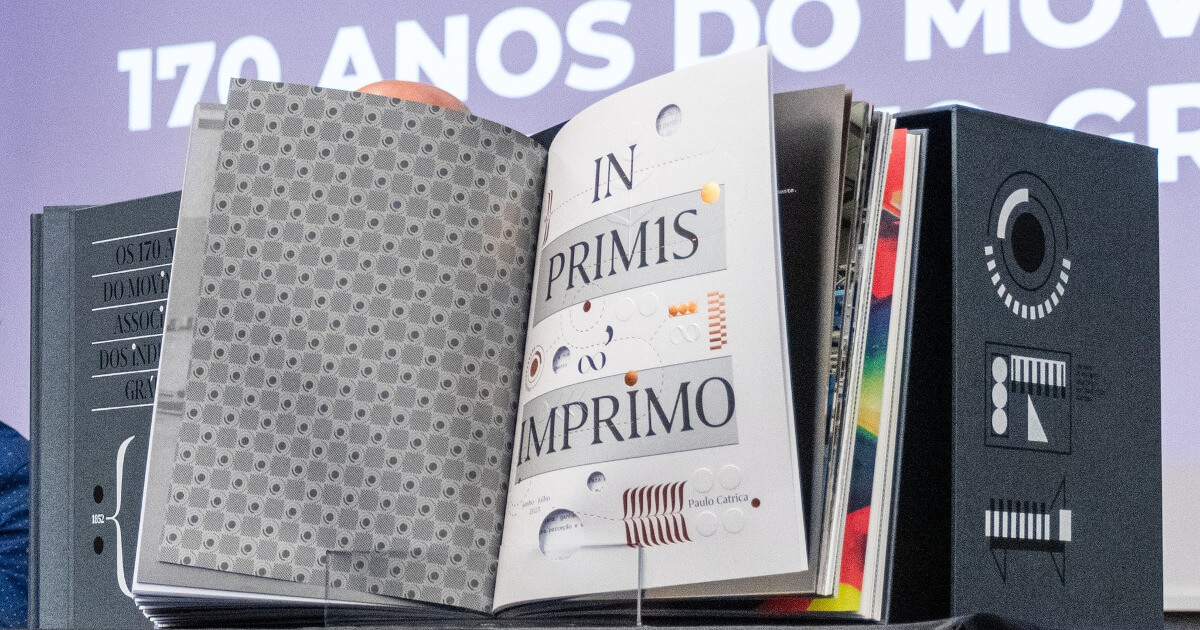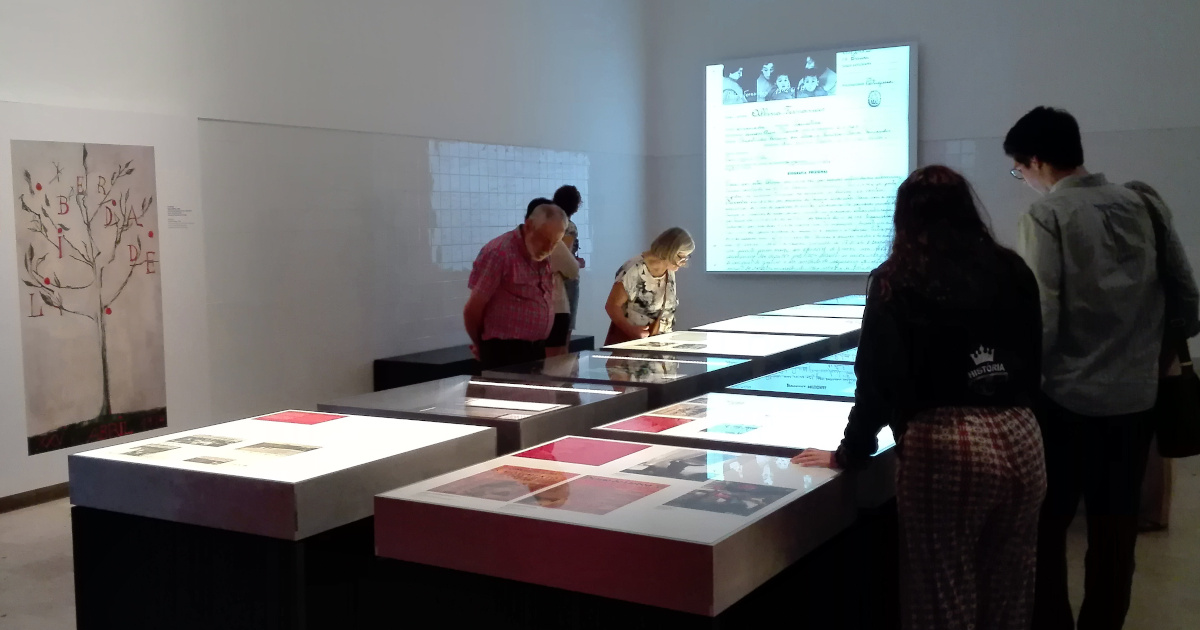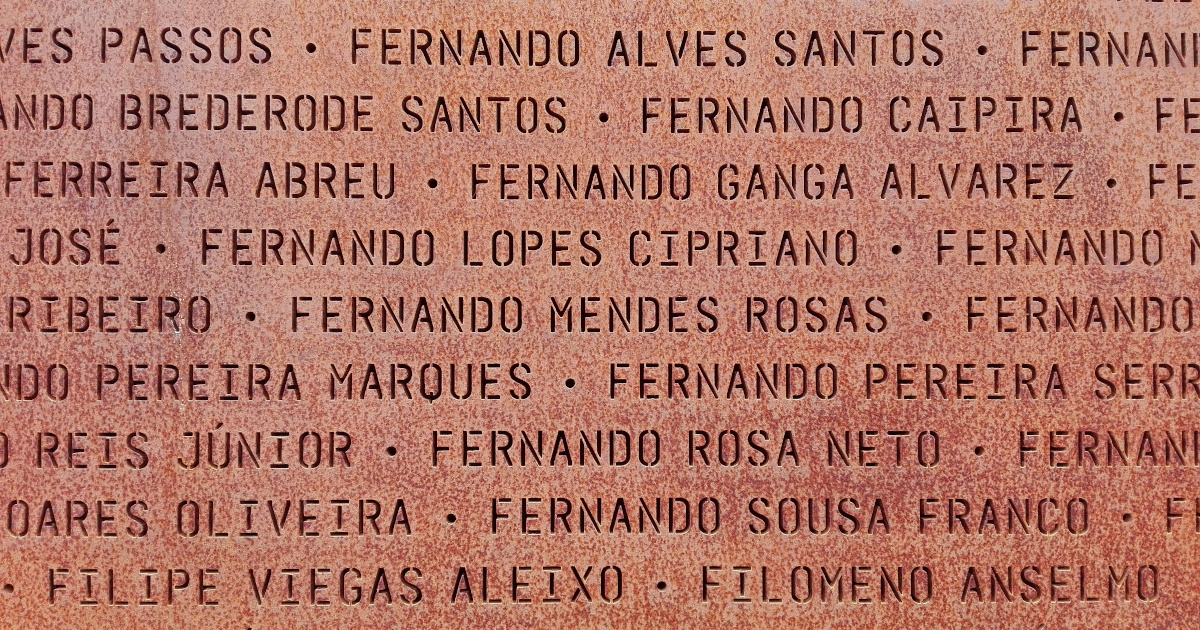HPSP Projects
Research Projects — History in the Public Sphere Program
The Institute of Contemporary History brings together a multidisciplinary team of researchers with specialised skills and knowledge in the fields of history, archives, museology, and heritage, among others. In addition to fundamental research, the IHC team has been involved in numerous research and scientific dissemination projects through the provision of services to public, private, and civil society organisations.
Here we highlight a few of the most relevant and recent projects.
History of the Printing Press Association Movement in Portugal
In 2021, the Institute of Contemporary History was contracted by APIGRAF, the Portuguese Association of Printing and Papermaking Industries, to carry out research to support the celebration of 170 years of the printing press association in Portugal, which will took place in 2022.
The project was coordinated by José Neves and involved a multidisciplinary team made up of Cláudia Figueiredo, Rahul Kumar, Joana Dias Pereira, and Nuno Medeiros. It combined APIGRAF’s objectives, which include preserving and enhancing its historical memories and promoting and publicising the role of the printing industry in Portugal from the 19th century onwards, with the IHC’s mission of historical-scientific research and a commitment to close relations with civic society stakeholders.
In November 2022, we organised a seminar about the memory and cultural heritage of the printing industries in contemporary Portugal at the National Library of Portugal. Marking the 170th anniversary of the creation of the Sociedade de Soccorros dos Typographos Portuenses (1 January 1852) and the Associação Typographica Lisbonense (28 July 1852), we discussed the role of the printing industries in the contemporary world, considering their relevance to the history of print culture, as well as their dissemination in modern daily life in general.
The project culminated in the publication of the work “170 Anos do Movimento Associativo Gráfico” [170 Years of the Printing Press Association Movement], for which researcher Paulo Catrica and various printing companies were also involved. The book is made up of two volumes: “Os 170 Anos do Movimento Associativo dos Industriais Gráficos” [170 Years of the Printing Industry Association Movement] and “Os Mundos da Indústria Gráfica e Transformadora do Papel” [The Worlds of the Printing and Paper Manufacturing Industries]. The launch took place in Braga during APIGRAF’s 2024 Meeting. Several innovative techniques were used in the production of the two books and the box that includes them, such as the use of stamping on the silkscreen varnish and the generation of images that will only appear when the varnish reacts to sunlight.
The History of Mutualism
In 2020, the IHC was contracted by the Union of Portuguese Mutual Organisations to carry out research into the historical roots of the mutualist movement, both in Portugal and in its former colonies. The project was coordinated by Joana Dias Pereira, with the participation of Rui Henriques.
The research has resulted in two books: “Origens do Mutualismo em Portugal” [Origins of Mutualism in Portugal] (2021) and “História do Mutualismo nas ex-colónias portuguesas” [History of Mutualism in the former Portuguese colonies] (2022). In the interview below, Joana Dias Pereira explains the research and the findings published in the first book [in Portuguese]:
The book “História do Mutualismo nas ex-colónias portuguesas” won the 2023 António Sérgio Cooperation and Solidarity Prize in the Lusophone Studies and Research category. The work sought to “identify the extent of the spread of the mutualist model in the territories of the former Portuguese colonies, its capacity for institutional adaptation and resilience, without disregarding the ancestral practices of informal reciprocity between local communities”. The authors “carried out an exhaustive survey of the associations that were recognised by the colonial authorities” and also “researched colonial ethnography to identify the associations that were not recognised”. They concluded that mutualism was present in all the organisations, demonstrating that “it is a practice of collective action that cuts across different cultures and different geographical, economic and political situations”, including the colonial one, where it played a leading role.
As part of the project, the conference “O papel da proteção social complementar para a realização dos Objetivos de Desenvolvimento Sustentável: o caso do mutualismo” [The role of complementary social protection in achieving the Sustainable Development Goals: the case of mutualism] was also organised in São Tomé and Príncipe in 2023. In the video below, Joana Dias Pereira explains the colonial component of the project [in Portuguese]:
National Museum of Resistance and Freedom
In 2018, a collaboration protocol was signed between the Institute of Contemporary History and the Directorate-General for Cultural Heritage (now extinct) with a view to researching and producing content for the permanent exhibition of the planned National Museum of Resistance and Freedom, in the Peniche fortress. The IHC was also a member of the Content Installation and Museological Presentation Committee.
The research project was coordinated by Fernando Rosas and included the participation of Francisco Bairrão Ruivo, Joana Dias Pereira, Maria Alice Samara, and Susana Martins. Based on this initial research, the temporary exhibition For Your Free Thinking was inaugurated in 2019, recording “key moments in contemporary history – the repression and violation of human rights by the Military Dictatorship and the Estado Novo, the Colonial War, the Resistance to Fascism, 25 April and the Democratic Regime – from the memory of the place, Peniche Prison”.
Research continued, contributing to the creation of the museum’s permanent exhibition. The National Museum of Resistance and Freedom was formally inaugurated on 27 April 2024, marking the 50th anniversary of the release of political prisoners after the revolution of 25 April 1974.
Furthermore, there are also two doctoral projects underway at the IHC that are co-hosted by the museum: “O Museu Nacional Resistência e Liberdade (Peniche) e a Memória da Violência Política do Século XX: Estudo Comparado entre Portugal, a África do Sul e o Chile” [The National Museum of Resistance and Freedom (Peniche) and the Memory of Political Violence in the 20th Century: A Comparative Study between Portugal, South Africa and Chile], by Sofia Lisboa, and “Corpos Femininos, Presos Políticos: A Violência Policial face às Mulheres na Resistência ao Regime Fascista” [Female Bodies, Political Prisoners: Police Violence against Women in the Resistance to the Fascist Regime], by Inês Ferreira de Almeida.
Search
News
Víctor Barros and Pedro Cardim coordinate a programme on Creole Cultures and the Atlantic
Feb 6, 2026
Applications are open until 16 February
Ana Cristina Martins at the International Academy of Portuguese Culture
Jan 26, 2026
Will take office as a Full Member
Proença-a-Nova is the first partner in the ‘The Government of Us All’ programme
Jan 23, 2026
The city took up the challenge launched by the IHC last year







